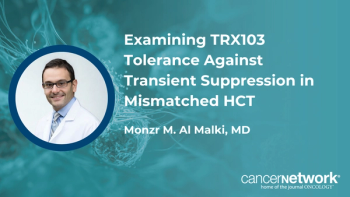
Jeffrey Wolf, MD, on the Future of MRD and More Sensitive Measuring Techniques in Myeloma
Wolf touched on the future of MRD and the potential development of more sensitive measuring techniques for patients with multiple myeloma.
Jeffrey Wolf, MD, of the University of California San Francisco, discussed with CancerNetwork® the future of minimal residual disease (MRD) and the potential development of more sensitive measuring techniques for patients with multiple myeloma at the 2020 American Society of Hematology (ASH) Annual Meeting & Exposition.
Transcription:
I think there’s just no question that over the next few years we will have the ability to measure in the blood, either with circulating DNA or with mass [spectrometry], the disease much more sensitively than we do now by just using protein electrophoresis, for example, or light chains. I think that when we get to that point, we will use it regularly to try to achieve an MRD of 0 because we’ve shown over and over and over, and we’ve shown is this paper as well, that those who achieve MRD negativity have a [median] PFS [progression-free survival] of 97 months and those who don’t have a PFS of 57 months. There’s just no question. If I had myeloma, I would want to have an MRD of 0 in a million because I [would] know that my disease will be controlled longer, and because of that I will live longer.
Newsletter
Stay up to date on recent advances in the multidisciplinary approach to cancer.










































